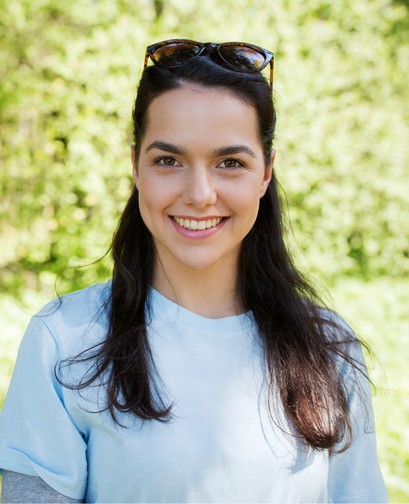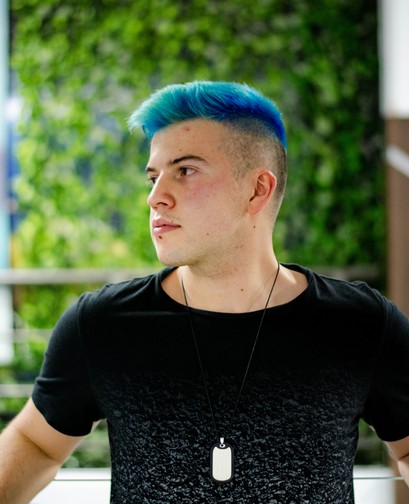If you’re here, chances are that you’re wondering how you can be a great ally to the Autistic community – and on behalf of the Autistic community, we would like to say a big, resounding thank you! The world needs more people like you, who are willing to learn, listen to actually Autistic voices, and help us by advocating with us for change. We appreciate you being here, and we’re honoured to provide resources and education to help you feel better informed, connected and empowered as an ally.
An ally is someone who stands up for, supports and encourages the people around them. In this instance, an ally is a person working to amplify Autistic rights for either an individual Autistic person they know, or for the Autistic community at large. You might be a grandparent, sibling, friend, colleague, neighbour, partner, other family member, or have many other roles in an Autistic person’s (or many Autistic people’s) life.
Being an ally goes further than just not adding to the collective harms the Autistic community experiences. Rather, it encompasses actively taking steps to combat the stigma, discrimination, exclusion, and oppression that Autistic people have faced and continue to face.
There are many ways you can “show up” and support Autistic people and our Autistic community. First and foremost – remember to listen to and amplify Autistic voices. Listening is at the core of allyship and although there are countless professionals and so-called “experts” on Autism, nothing is more insightful than the knowledge of immediate Autistic lived experience… so wherever possible, listen to Autistic people’s perspectives and experiences. We are the experts on Autism and on our own lived experiences, positive and negative. Support the Autistic folk in your lives by listening to them first, and commit to learning from Autistic voices in general.
This commitment will underpin every other step you take as an awesome Autistic ally!

One of the most important ways to be an ally is to show Autism acceptance and understanding on a personal level. This simply means being present and welcoming to Autistic people and their families.
Many Autistic people can feel isolated due the stigma and misperceptions that society has around people who are different – we know that Autistic people (and our families) may not get invited to social events, friends might not visit, and it can be hard to be involved in the wider community. While sometimes we choose to avoid some social interactions because of sensory challenges, social differences, demand anxiety, or just our executive functioning and capacity, the reality is sthat Autistic people are often actively excluded because society does not welcome or accept us.
So, how can you demonstrate your welcoming? Seeking out Autistic voices (however they communicate) and listening to Autistic experiences. There’s a lot of information about Autism “out there”, and most of it comes from non-Autistic people. So, whenever possible, choose Autistic people as your first source of information. This includes listening to the Autistic people in your life – try to ask the Autistic people in your life what they think and why they may feel a certain way before you go looking for answers elsewhere.
If you don’t have (or don’t know if you have) any Autistic people in your life, you might like to start by looking online into Autistic communities.
One way to start is by looking for the #ActuallyAutistic hashtag or label on social media. If our community leads the conversation, you’ll often find the hashtag. Use the tag to find articles, blogs, memes created by our community.
An important note: if you yourself are not Autistic, please refrain from posting within the #ActuallyAutistic community, as it’s important to keep this space for Autistic voices. Non-autistics are encouraged to post and ask questions in other related communities, such as #AskingAutistics or #AskAnAutistic, which are communities specifically designed for non-autistics to ask questions and learn from Autistic people.

As an ally, it is vital to use affirming language when discussing Autism. Language choices have real world implications for how people understand Autism, and for what messages we internalise about ourselves if we are Autistic. Language won’t change all the challenges associated with being Autistic in a world that isn’t designed for Autistic people. But reducing the stigma and negative connotations that suffuse much of the language commonly used to speak about Autism will definitely improve the wellbeing of Autistic people and their loved ones.
Generally, the Autistic community prefers identity-first language (“I am Autistic”) to person-first language (“I am a person with Autism”). Functioning labels such as “high functioning” or “low functioning” or indications of severity of Autism are disrespectful, reductive, and dehumanising. Explanations for these (as well as more neuro-affirming language examples) are available in the link below.
Try to avoid phrases that trivialise or minimise our experiences as Autistic people, for example, “We’re all a little bit Autistic!”, “You don’t look Autistic” or “everyone’s being diagnosed these days”. Although many people mean well when they make comments like this, in fact, the sentiment behind these comments invalidate the Autistic community and contribute to spreading harmful misinformation. There is no way to be “a little bit” Autistic: you are either Autistic, or not Autistic, and phrases like these reinforce the idea that a person who is “less Autistic” (or, more accurately, masks their Autism) is better than a person who is “more Autistic”. We really need your help to eradicate these (and other similar) harmful phrases from the collective vernacular!
If in doubt, or if you’re curious, follow the golden rule – ask an Autistic person. Whether you ask an Autistic person that you know, or whether you approach the Autistic community at large (e.g., online), if you’re unsure of what language is most respectful, please ask an Autistic person for guidance. So, if you want to know how we feel about something, ask us. And, critically, if we call something out as harmful or ableist, believe us. Even if you don’t understand why it is so in the moment, acknowledge and validate our experience. Spend time doing research and learning why that action or language might be harmful. We are the experts on our own experiences, and the core business of an ally is to amplify those direct experiences (even if our experiences don’t match your own).

Autism Essentials is a free, self-paced course that provides a solid understanding of Autism in a way that is neuro-affirming. This means we talk about Autism and Autistic people in a way that is respectful of who we are, our strengths and our challenges, and does not prioritise non-Autistic ways of being, thinking and doing.
What will I learn in Autism Essentials?
Autism Essentials focuses on five main areas:
With over 13,000 registrations since its launch last year, Autism Essentials has become one of our most popular learning opportunities to date.
Unlike other courses offered on Autism, it is developed, designed, and presented by an all-Autistic team. It is not only information-rich, but actively centres Autistic experience as meaningful, and approaches Autism from a perspective of building broad and genuine wellbeing for every Autistic individual and the Autistic community.
When it comes to being an ally, many people might feel a little cautious. They might feel as though they don’t want to say the wrong thing accidentally, misstep, or inadvertently cause any harm whilst trying to learn. If that’s how you’re feeling, that’s okay!
We want you to know that it’s okay to ask questions, and most Autistic people would rather someone ask them those tricky questions so they can learn, rather than operate under assumptions, or feel too scared to ask. We want you to ask questions of us!
If you have any questions around allyship that aren’t covered by this list, please feel free to message us and we would be honoured to help you.

The Reframing Autism team would like to acknowledge the Traditional Owners of the lands on which we have the privilege to learn, work, and grow. Whilst we gather on many different parts of this Country, the RA team walk on the land of the Awabakal, Birpai, Whadjak, and Wiradjuri peoples.
We are committed to honouring the rich culture of the Aboriginal and Torres Strait Islander peoples of this Country, and the diversity and learning opportunities with which they provide us. We extend our gratitude and respect to all Aboriginal and Torres Strait Islander peoples, and to all Elders past and present, for their wisdom, their resilience, and for helping this Country to heal.